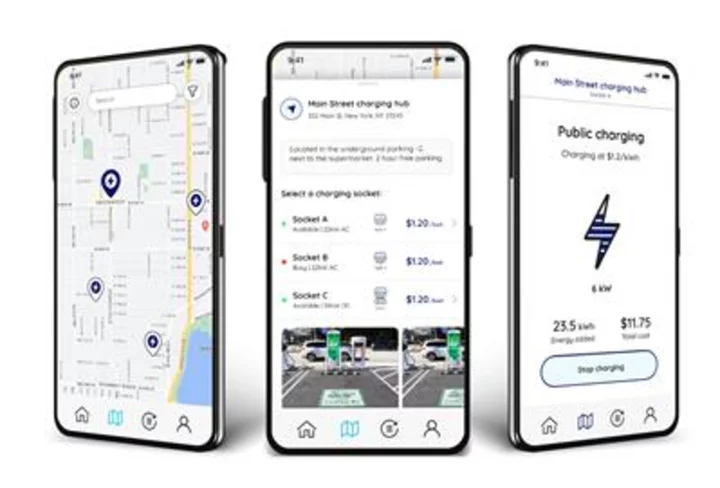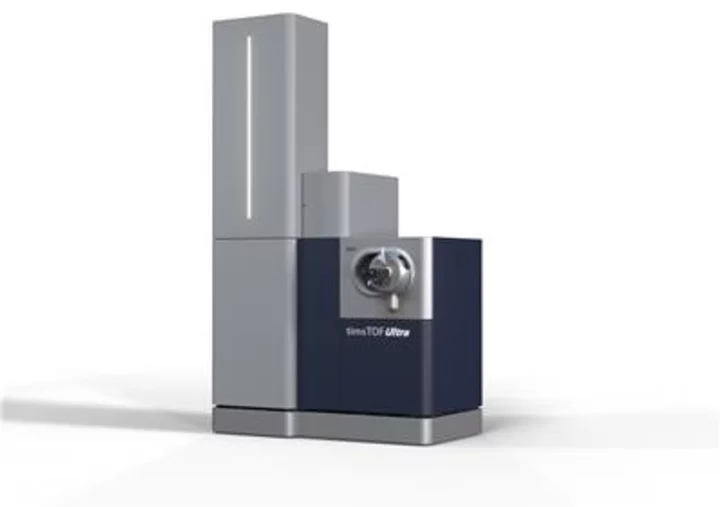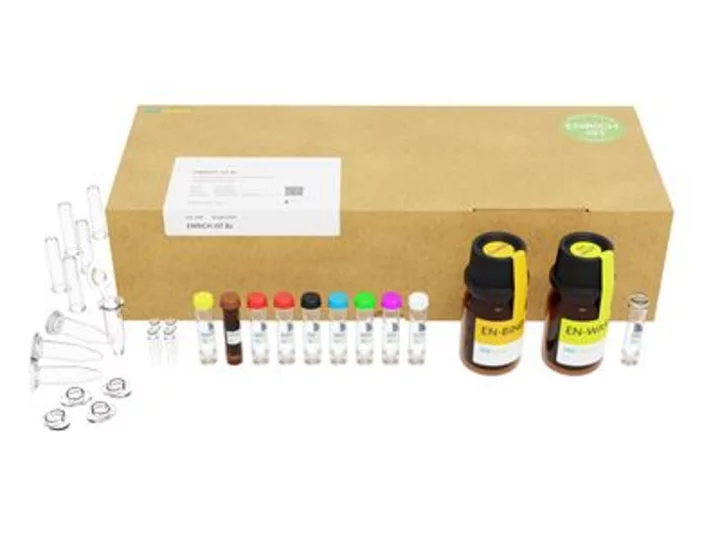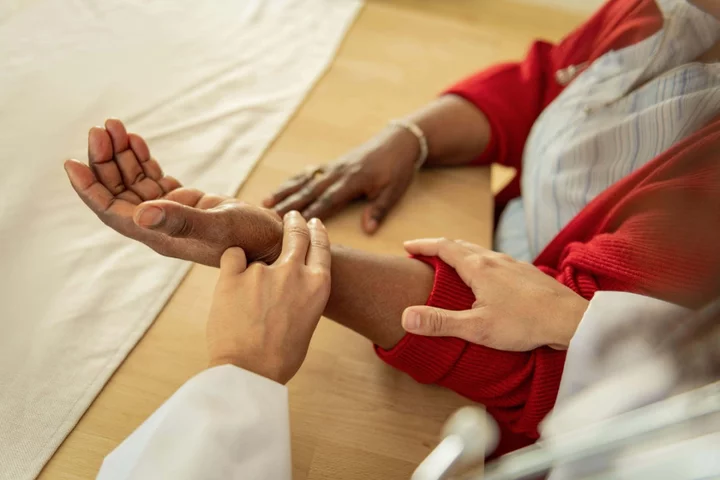
Saudi Arabia, US Make Tentative Steps Toward Healing Deep Rift
US Secretary of State Antony Blinken’s visit to Saudi Arabia this week is the latest sign of improving
2023-06-05 19:47

Disney refuse to rule out Pirates of the Caribbean return for Johnny Depp
Disney Studios Motion Picture boss Sean Bailey has not ruled out the possibility of Johnny Depp returning as Captain Jack Sparrow in a future 'Pirates of the Caribbean' movie.
2023-06-05 19:47

James Wan: Aquaman sequel will address climate change
James Wan has explained how climate change will feature as a theme in the "serious" movie 'Aquaman and the Lost Kingdom'.
2023-06-05 19:46

SolarEdge Introduces Solar-Attached EV Management Solution for the Commercial and Industrial Segment
MILPITAS, Calif.--(BUSINESS WIRE)--Jun 5, 2023--
2023-06-05 19:24

Vast Advances Utility-Scale Concentrated Solar Thermal Plant as Worley Commences Engineering
SYDNEY, Australia--(BUSINESS WIRE)--Jun 5, 2023--
2023-06-05 19:23

Bruker Launches timsTOF Ultra Mass Spectrometer with Transformative Sensitivity, 300 Hz PASEF MS/MS, and VistaScan™ for Enhanced dia-PASEF® 4D-Proteomics™
HOUSTON--(BUSINESS WIRE)--Jun 5, 2023--
2023-06-05 19:20

PreOmics Introduces New ENRICH-iST Kits and Novel Workflow for Unbiased, Affordable Plasma and Serum Proteomics by LC-MS
HOUSTON--(BUSINESS WIRE)--Jun 5, 2023--
2023-06-05 19:16

World Heart Rhythm Week: Could you have an abnormal heart rhythm?
It’s believed around three million Brits have an abnormal heart rhythm or arrythmia – and many may not even realise it. The most common arrhythmia is atrial fibrillation (AF), which causes an irregular and often unusually fast heartbeat, and is associated with a five-times higher risk of having a potentially fatal or life-changing stroke. If diagnosed, AF can be treated – however, it’s estimated there are at least 270,000 people in the UK who are unaware they have the condition, according to the British Heart Foundation (BHF). “What remains troubling is the sheer number of people who are undiagnosed and unaware that they are living with a heightened risk of stroke,” says BHF medical director, Professor Sir Nilesh Samani. “Finding people with this hidden threat must remain a priority.” Trudie Lobban, founder of the Arrhythmia Alliance – a coalition of patients, healthcare professionals and policymakers, adds: “Heart rhythm disorders are a leading cause of sudden cardiac death and devastating strokes, and yet too few people are aware of the rhythm of their heart.” To mark World Heart Rhythm Week (5-11 June), experts are highlighting the importance of being aware of arrhythmia warning signs and getting things checked out. Here’s what you need to know… Arrhythmias can affect all age groupsHowever, AF is most common in older age groups. As Dr Anthony Chow, a consultant cardiologist at The Wellington Hospital, part of HCA Healthcare UK, explains: “Heart rhythm problems are a very common condition that can affect all age groups, but AF is more common in older people. It can be as common as 10% of the population in their 70s, and almost 29% of those in their 80s.” Arrhythmias can have many causes Lobban says many conditions can cause heart rhythm problems, including heart failure, blackouts, electrolyte disturbances, thyroid disorders, infections, heart attacks, strokes, cardiomyopathy, high blood pressure, sleep apnoea and obesity. Triggers can also include stress, caffeine, tobacco, alcohol, diet pills, and cough or cold medicines. “But there is usually an underlying physical reason for it,” Lobban adds. Warning signs to look out for Key warning signs, says Chow, are palpations (a thumping or fluttering sensation in your heart/chest), dizzy spells and feeling faint, breathlessness, chest discomfort, and feeling overly tired. These things don’t automatically mean you have a heart problem, but it’s important to get any symptoms checked out. And Chow adds: “Not everyone experiences these exact symptoms and, in some cases, patients can experience no symptoms at all.” How to measure your heart rhythmThere are many ways heart rhythms can be measured clinically, through ECGs or monitors. You can check your pulse yourself at home, too. “The easiest way to detect an arrhythmia is to feel your pulse and hence your heart rhythm – is it irregular, too fast, or too slow?” says Lobban. “Such a simple thing as a 30-second pulse rhythm check can literally save your life.” The Heart Rhythm Alliance has a ‘know your pulse’ guide on their website. Lobban says you should sit down for five minutes beforehand, and remember that any stimulants you’ve taken, like caffeine or nicotine, will affect the rate. You’ll need a watch that measures seconds (take it off to do the test), or your phone timer could work. Hold your left or right hand out with your palm facing up and elbow slightly bent. With your other hand, place your index and middle fingers on your wrist near the base of your thumb, between the bone and stringy thumb tendon, to find your pulse. Once you’ve found your pulse, maintain a firm pressure and count the beats for 30 seconds, then multiply by two to get your heart rate in beats per minute. If your heart rhythm is irregular, you should count for one minute and don’t multiply. Arrhythmia can cause many serious health problemsHeart arrhythmia can cause a variety of serious heart health complications including strokes, heart failure and heart attacks, explains Chow. “Heart arrhythmias, in particular AF, are often associated with an increased risk of blood clots, so it’s extremely important to be aware of the warning signs,” he says. “If a blood clot breaks loose, it can travel directly from the heart to the brain, which can cause a stroke. You should consult your doctor and get referred to a cardiac rhythm specialist for assessment if you have significant symptoms.” When to see a doctor If you have any previous history of heart problems and/or are becoming increasingly concerned about palpations, you should speak to a medical expert, Chow advises. Those with a family history of arrythmia and/or sudden cardiac death should also make sure they get checked out. “It’s not usual that we’re aware of our heart beating, unless there’s a disturbed rhythm,” he says. “You should speak to your doctor if your heart palpations are lasting a long time, or aren’t improving and seem to be getting worse. Acute instances of symptoms could be a warning sign of something more serious, so it’s important to seek medical advice if you’re concerned. In some cases, arrhythmia could be an indication of a medical emergency such as a heart attack.” Treatment for arrhythmiaArrhythmias can be treated in a variety of ways. “Some require no more than reassurance after diagnosis, but others may need drug therapy, or implantation of an electrical device such as a pacemaker or ICD,” says Lobban. Chow says therapies such as cardioversion can be used to reset the heart rhythm by sending a shock through the chest to the heart, and there are also procedures and surgeries including catheter ablation, where wires are threaded through blood vessels directly to the heart and heat is used to create tiny scars in the heart to block abnormal electrical signs and restore a normal heartbeat. Chow adds: “Most people with abnormal heart rhythms can lead a normal life when the condition has been properly diagnosed and managed.”
2023-06-05 18:57

New Found Intercepts 105 G/T AU Over 27.1M at Iceberg
VANCOUVER, British Columbia--(BUSINESS WIRE)--Jun 5, 2023--
2023-06-05 18:54

'Everything went wrong': Michelle Yeoh reveals Jackie Chan saved her life while filming dangerous stunt
Michael Yeoh had a close shave with death on the sets of ‘Police Story 3: Super Cop’ but lives to tell the tale thanks to Jackie Chan's quick thinking
2023-06-05 18:53

Trudeau Is Betting $9 Billion on a Plan to Clean Up the World’s Dirtiest Oil
Canada is staking billions of dollars of public money on an oil industry plan to transform one of
2023-06-05 18:49

Changing dishwashing habits can help save more than 3.5 million tonnes of CO2 in Europe
GENEVA--(BUSINESS WIRE)--Jun 5, 2023--
2023-06-05 18:48
